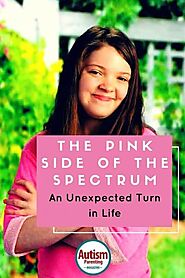-
About
- About Listly
- Community & Support
- Howto
- Chrome Extension
- Bookmarklet
- WordPress Plugin
- Listly Premium
- Privacy
- Terms
- DMCA Copyright
- © 2010-2025 Boomy Labs

Listly by Autism Parenting Magazine
To be completely honest, I thought I was well educated on special education. I mean after all, I have worked with several different students with a wide range of learning disabilities, physical disabilities, etc. However, reality didn’t set in until I had my own child. Let’s face it – there is a huge difference between reading something in a book and living it.

To be completely honest, I thought I was well educated on special education. I mean after all, I have worked with several different students with a wide range of learning disabilities, physical disabilities, etc. However, reality didn’t set in until I had my own child. Let’s face it – there is a huge difference between reading something in a book and living it.

I have three autistic children, along with three who are neurotypical. They were all born within a 12-year period. As you might imagine, our family household was a wild and crazy 20-year rollercoaster ride as they were all growing up.

Before starting the discussion, you will need to determine how your daughter learns best, and how much or what type of information will be helpful for her. This will be an on-going conversation, not a one-time thing. As she experiences new things, she will continue to need your support and guidance. For significantly impacted children with autism, it may not be appropriate to get into every detail, whereas higher functioning children may benefit from more in-depth learning.
I am a single dad raising my autistic daughter. Can you give me any advice on educating her and helping her navigate puberty and her menstrual cycle? I’m lost! —Tony

For women with Asperger’s, the workplace can be a very isolated place. Organizations are social environments, which is uniquely challenging for Aspie Women. In the workplace, women tend to form cliques, social groups, and tribes that neurotypical women are more naturally enabled to understand and navigate. In organizations that I have observed, there is a distinct social stratum among women with unclear directions and stumbling blocks for women with Asperger’s.

Navigating as an autism parent can be challenging as no two children on the spectrum are alike. Raising a girl on the spectrum can be especially challenging. Since girls account for much less of the total diagnoses, it’s much harder to find research studies or information exclusively about girls on the spectrum. Primarily viewed as a boy’s disorder, attributes unique to autistic girls oftentimes gets excluded, making the information non-gender specific, or lacking details relevant to females. This became even more apparent when our daughter reached puberty.

In a previous article for Autism Parenting Magazine, I addressed erasing the prejudice of violence associated with individuals on the autism spectrum. Although it is important to erase that growing prejudice, I mentioned that it would be negligent not to discuss the possibility of special interests (which is a symptom of Autism Spectrum Disorder (ASD)) becoming a clinical concern. In the previous article we touched on special interests that might cross a clinical line and said as an autism specialist and professional counselor, I urge parents to be vigilant of the special interests a spectrum child engages in approaching those teen/tween years. A second interview with Dr. Tony Attwood focused on the Spectrum Teen’s development of core self and dating relationships and the correlation with intense special interests.

When it comes to autism, there can be many misconceptions and misunderstandings in the classroom environment. Sometimes, parents of children with autism in mainstream settings are blamed for their child’s unusual behaviors; teachers may not accept that behaviors they are seeing are typical of autism.
